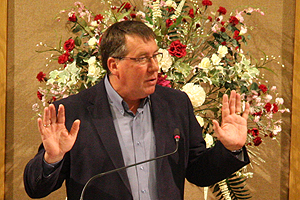Hot off the press is my latest book, just published by IVP. Here’s an extract from the Introduction by way of a taster;
“In my living room there hangs in pride of place a dark brown frame. It contains three items;
- A black and white photo
- A crumbled letter
- A postcard
All three are connected to a man I never met – my grandfather, Thomas Coffey.
The photo is of his grave, close to the Belgian battlefield where he died on 12 July 1916. The letter was the last he wrote home to his wife, Ada, just a few weeks before he was killed. The postcard is dated a few months earlier and was standard issue to the troops bearing a drawing of a soldier dressed for the trenches writing the card balanced on top of an upturned box. It contains the following lines;
In memory of the days gone by
Although we’re now apart
I send this postcard just to show
You live within my heart
The three reminders are all we have of my grandfather. They came to light when clearing through my father’s papers after his death. They were special to him as a link to a father he never knew, as like tens of thousands of children, their fathers didn’t return from the war that was meant to end all wars.
The letter and card were written in pencil. Tom thanks Ada for the photo she had sent of baby Arthur (my dad) and asked for pairs of socks as he’d been issued with boots that were too big for him. He signs himself as “your loving husband” and adds the poignant P.S. “Please excuse writing as I am writing this standing up”.
A Postcard and a letter from the Edge filled with special meaning for my family and me.
This book is along the same lines as it details some people who found God in hard places. Their stories are contained in the pages of the Bible and remind us that in every age, people have faced challenges and difficulties. These men and women of faith discovered strength beyond themselves by relying on God and have left behind a legacy that lingers.
The Christian leader, Paul, wrote to the community of Christ’s followers in Rome reminding them;
“For everything that was written in the past was written to teach us, so that through endurance and the encouragement of the Scriptures we might have hope.”
Romans 15:4
Three key words in that statement sum up the purpose of this book; endurance, encouragement and hope. I pray that these postcards, written from the front line, will bring you all three.”
Last Sunday on the way out of church a young woman asked me “Why did you write this book?”
Good question.
The answer I gave was simply that many of us face (even live with) tough issues such as loss, doubt, fear, despair, inadequacy and failure. Followers of Jesus are not immune to such pressures.
So how do we survive and thrive when living on the edge?
That’s the question the book sets out to address.
The book can be ordered direct from IVP: http://thinkivp.com/9781783592050











